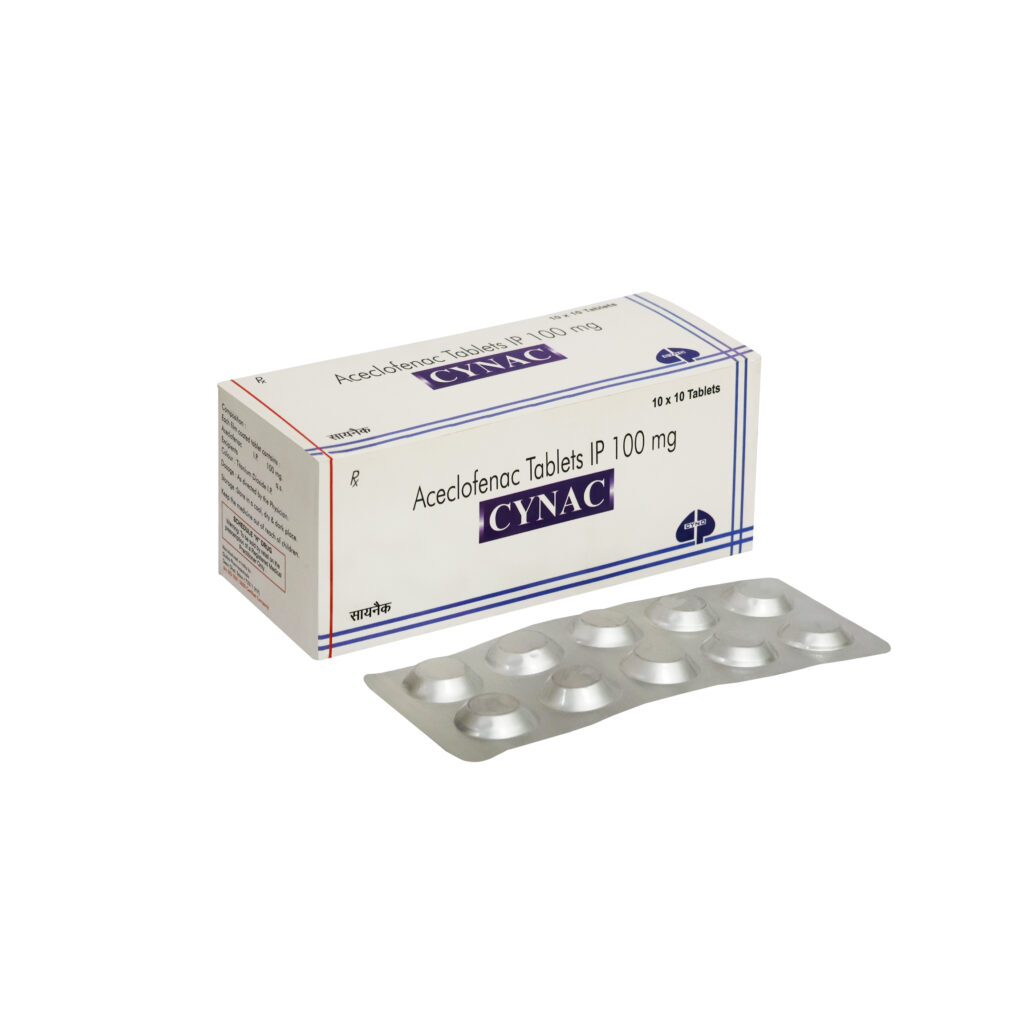
Aceclofenac is a non steroidal antiinflammatory drug (NSAID) analog of Diclofenac. It is used for the relief of pain and inflammation in rheumatoid arthritis,osteoarthritis and ankylosing spondylitis. The dose is 100 mg twice daily.
It should not be given to people with porphyria or breast-feeding mothers, and is not recommended for children.
Mechanism Of Action: Aceclofenac has higher anti-inflammatory action than conventional NSAIDs. It is a cytokine inhibitor. Aceclofenac works by blocking the action of a substance in the body called cyclo-oxygenase. Cyclo-oxygenase is involved in the production of prostaglandins (chemicals in the body) which cause pain, swelling and inflammation. Aceclofenac is the glycolic acid ester of diclofenac.
Pharmacokinetics of Aceclofenac
Absorption- It is rapidly and completely absorbed after oral administration
Distribution- Widely distributed in the body as protein-bound form. It is highly protein-bound (>99.7%). Aceclofenac penetrates into the synovial fluid, where the concentrations reach approximately 60% of those in plasma.
Metabolism- Metabolized into metabolites in the liver. Main metabolite is 4-hydroxyaceclofenac
Excretion- It is excreted through urine mainly as conjugated hydroxymetabolites
Half Life of Aceclofenac
The mean plasma elimination half-life is 4 – 4.3 hours
Side Effects of Aceclofenac
1. Dyspepsia
2. Abdominal pain
3. Dizziness
4. Vertigo
5. Pruritis
6. Rash
7. Dermatitis
8. Nausea
9. Diarrhoea
10. Flatulence
11. Gastritis
12. Constipation
13. Vomiting
14. Ulcerative stomatitis
15. Elevation of circulating levels of hepatic enzymes.
Contra-indications of Aceclofenac
1. Hypersensitivity to the drug
2. Bleeding from the stomach or intestines
3. Moderate to severely decreased kidney function
4. Hypersensitivity to other NSAIDs
5. Active peptic ulcer
Special Precautions while taking Aceclofenac
1. Hepatic porphyria
2. Bleeding tendencies
3. Blood disorders
4. Crohn`s disease
5. Decreased heart function
6. History of peptic ulcers
7. Inflammation of the bowel and back passage
8. Mildly decreased kidney function
9. Recent major surgery
10. Stomach disorders
11. Decreased liver function
12. Intestinal disorders
Pregnancy Related Information
Contraindicated.
Breast Feeding Related Information
Contraindicated.
Children Related Information
Use with caution
Indications for Aceclofenac
1. Ankylosing spondylitis
2. Osteoarthritis
3. Symptomatic treatment of pain and inflammation in Post-Traumatic pain
4. Cervical pain
5. Low back pain
6. Acute gout
Interactions for Aceclofenac
Lithium, digoxin and methotrexate: Aceclofenac may increase plasma concentrations of lithium, digoxin and methotrexate.
Anticoagulants: Activity of anticoagulants may be increased.
Diuretics : Aceclofenac inhibits the activity of diuretics. When concomitantly administrated with potassium sparing diuretics, serum potassium should be monitored.
Cyclosporin: Aceclofenac may enhance cyclosporin nephrotoxicity.
Quinolones : Aceclofenac may precipitate convulsions when coadministered with quinolone antibiotics.
WhatsApp us